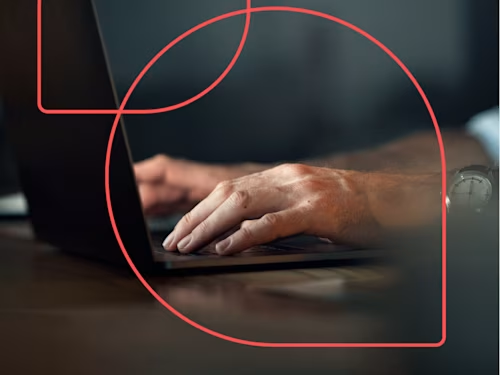
Electronic signatures: Almost everything you need to know
Electronic signatures allow businesses to sign documents securely. Here’s a complete guide to electronic signatures, including how to create one.

Electronic signatures: A Complete Guide to Electronic Signatures
Electronic Signatures enable organisations and individuals to sign documents remotely from a mobile device or computer, creating a court admissible signature in seconds. Using electronic signatures or e-signatures helps businesses to reduce risks, save resources and build better customer experiences. This article covers everything you need to know about electronic signatures, including how they work and the security and legal benefits.
What is an Electronic Signature?
An electronic signature is used to sign documents that are sent online, removing the need to sign paper documents with a wet ink signature. An e-signature can be used on legal documents, contractual agreements, invoices, financing documentation and more. It could take the form of a digital version of an individual's signature. An electronic signature provides evidence that the signer accepts or agrees with whatever is set out in the document. Electronic signatures are legal and safe. You can sign many legal documents electronically.
How do electronic signatures work?
Electronic signatures authenticate, track and store signatures and signer information at every stage of the contract lifecycle. Just like handwritten signatures, e-signatures are unique to each signer. Learn more about how electronic signatures work.
To ensure that your organisation follows electronic signature best practices, make sure that you offer employee onboarding and training on how electronic signatures work. Customers may also appreciate brief instructions if they are using electronic signatures for the first time. It's a good idea to trial an electronic signature solution to ensure it its the right fit for your business and integrates into the other systems you are using. You should also ensure the solution you choose is compliant with local and industry e-signature standards. Discover more about how to sign documents online. Here are five things to tell first-time users of electronic signatures and how to create an electronic signature in word.
What are the benefits of electronic signatures?
As businesses continue to move towards digital transformation and automation, electronic signatures are becoming a business necessity and a legitimate replacement for wet signatures. Here are a few of the benefits of electronic signatures:
Going paperless: reduce paper use, e-signing reduces the amount of paper required and can help organisations on their journey to go paperless.
Increased flexibility: you can sign from anywhere, making it easier to conduct business from a remote location or on the go.
Reduced costs: electronic signatures can help organisations save money. They help speed up workflows to save time and increase productivity and reduce the cost of printing, postage, and filing storage expenses.
Reduced errors and risks - advanced security and digital authentication methods reduce risks, and forms can be pre-filled, which avoids human error. Electronic signatures also provide an audit trail which is helpful to ensure compliance.
Improved efficiency - the approval workflow is automated, enabling document owners to clearly see who has signed and when, and a streamlined process increases employee productivity. Electronic signature software often has a dashboard tool that allows you to easily track which documents are awaiting a signature, speeding up processes that may have previously taken weeks. The software also stores signed documents, making them easier to locate.
Better UX - signing a document using electronic signature software is quick and straightforward. It creates better experiences for both customers and employees. What's more, electronic signature solutions can be easily integrated into systems your employees are already using.
Are electronic signatures legal?
In a word, yes. E-signatures offer as much, if not more, legal validity as traditional signatures. England, Northern Ireland and Wales have recognised electronic signatures with the Electronic Communications Act 2000 and the Electronic Signatures Regulation 2002.
Ireland has legally recognised electronic signatures since 2000 with the Electronic Commerce Act. The eIDAS (electronic identification, Authentication and trust Services) regulation is an EU law that oversees electronic identification, including electronic signatures, and electronic signature software like Docusign eSignature is compliant with eIDAS.
In the UK, the eIDAS Regulation has been implemented into law by the Electronic Identification and Trust Services for Electronic Transactions Regulations 2016 (2016 No.696) and section 7 of the Electronic Communications Act 2000. There are a few instances when electronic signatures do not meet legal requirements. However, in July 2020, the physical requirement to print and sign a document for a property transaction was removed as HM Land Registry (HMLR) began accepting "witnessed electronic signatures." Discover more about electronic signature legality in the UK.
Industry Working Group on eSignatures interim Report
On 1 February 2022, the expert Industry Working Group on Electronic Execution of Documents published their interim report, which sets out their analysis of the current state of e-signatures in England and Wales.
This report details how individuals and businesses can and should safely use electronic signatures, because - as noted by Lord Justice Birss - 'there is no need for an old fashioned pen and ink'.
The Industry Working Group is hoping that this guidance will enable an uptake across the government and the whole of society because they believe that electronic signatures are in many ways better and more secure than traditional methods, and should be the norm rather than the exception.
The group recommends that the Government make electronic signing available for all official documents including its own contracts with suppliers and government departments. The report cites HM Land Registry's practice guide on the execution of deeds and the Ministry of Justice's lasting powers of attorney project as a good example of government encouragement.
"There's every reason to adopt these methods now. Both the legal framework and the technical framework already exists - and there's no reason to wait"
You can read the fully report, where Mr. Justice Fraser notes that electronic signature "revolutionises the speed and efficiency of executing transactions".
Businesses in nearly every sector benefit from using eSignature solutions, including small, medium and enterprise-level organisations. As remote work grows, more and more organisations have found esignature essential to their business. Electronic signatures are often used for:
Sales contracts
HR & Employee Onboarding
Government services and applications
Healthcare
Financial Services
Intellectual Property Licencing
Non-Disclosure Agreements
Age Verification
Large organisations in the UK use electronic signature solutions; for example, Specsavers, Santander, AstraZeneca and Salesforce all use Docusign eSignature. 85% of Astra Zeneca's agreements now take less than one day.
Electronic signatures can help you take a step toward better contract management
Electronic signatures make it easier to increase productivity, reduce costs, work remotely and do business faster. Using electronic signatures can help organisations to accelerate growth and increase revenue. Try Docusign eSignature by registering for our 30 day free trial.
Related posts
 Insights for LeadersUpdated 11 Feb 2025
Insights for LeadersUpdated 11 Feb 2025

8 Contract Management Trends to Watch in 2025
Discover what's new with Docusign IAM or start with eSignature for free


